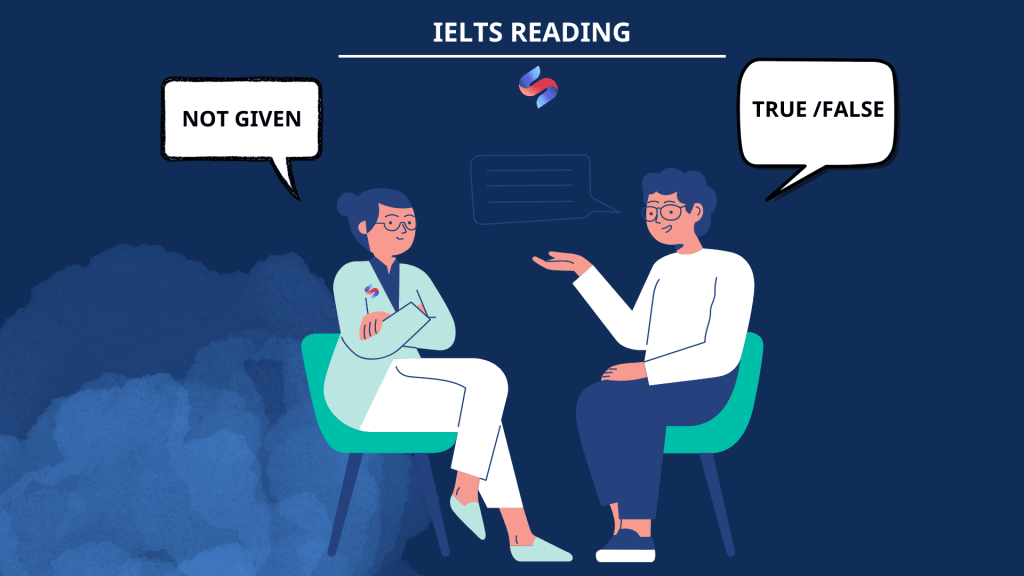Nâng cấp từ vựng – IELTS Vocab Booster 2.CAM9 – Test3- READING PASSAGE 1

Attitudes to language
It is not easy to be systematic and objective about language study. Popular linguistic debate regularly deteriorates into invective and polemic. Language belongs to everyone, so most people feel they have a right to hold an opinion about it. And when opinions differ, emotions can run high. Arguments can start as easily over minor points of usage as over major policies of linguistic education. Language, moreover, is a very public behaviour, so it is easy for different usages to be noted and criticised. No part of society or social behaviour is exempt: linguistic factors influence how we judge personality, intelligence, social status, educational standards, job aptitude, and many other areas of identity and social survival. As a result, it is easy to hurt, and to be hurt, when language use is unfeelingly attacked. In its most general sense, prescriptivism is the view that one variety of language has an inherently higher value than others, and that this ought to be imposed on the whole of the speech community. The view is propounded especially in relation to grammar and vocabulary, and frequently with reference to pronunciation. The variety which is favoured, in this account, is usually a version of the ‘standard’ written language, especially as encountered in literature, or in the formal spoken language which most closely reflects this style. Adherents to this variety are said to speak or write “correctly’; deviations from it are said to be ‘incorrect? All the main languages have been studied prescriptively, especially in the 18th century approach to the writing of grammars and dictionaries. The aims of these early grammarians were threefold: (a) they wanted to codify the principles of their languages, to show that there was a system beneath the apparent chaos of usage, (b) they wanted a means of settling disputes over usage, and (c) they wanted to point out what they felt to be common errors, in order to ‘improve the language. The authoritarian nature of the approach is best characterised by its reliance on ‘rules’ of grammar. Some usages are ‘prescribed to be learnt and followed accurately; others are ‘proscribed to be avoided. In this early period, there were no half-measures: usage was either right or wrong, and it was the task of the grammarian not simply to record alternatives, but to pronounce judgement upon them. These attitudes are still with us, and they motivate a widespread concern that linguistic standards should be maintained. Nevertheless, there is an alternative point of view that is concerned less with standards than with the facts of linguistic usage. This approach is summarised in the statement that it is the task of the grammarian to describe, not prescribe to record the facts of linguistic diversity, and not to attempt the impossible tasks of evaluating language variation or halting language change. In the second half of the 18th century, we already find advocates of this view, such as Joseph Priestley, whose Rudiments of English Grammar (1761 insists that ‘the custom of speaking is the original and only just standard of any language? Linguistic issues, it is argued, cannot be solved by logic and legislation. And this view has become the tenet of the modern linguistic approach to grammatical analysis. In our own time, the opposition between ‘descriptivists’ and ‘prescriptivists’ has often become extreme, with both sides painting unreal pictures of the other. Descriptive grammarians have been presented as people who do not care about standards, because of the way they see all forms of usage as equally valid. Prescriptive grammarians have been presented as blind adherents to a historical tradition. The opposition has even been presented in quasi-political terms – of radical liberalism vs elitist conservatism.
- Giải thích từ vựng
- Linguistic (a) /lɪŋˈɡwɪs·tɪk/: thuộc ngôn ngữ, thuộc ngôn ngữ học
Eg: Research into semantic skills focuses less on the qualitative aspects of linguistic competence than does research into phonological and morphosyntactic skills.
Linguistically (adv)
- Deteriorate (v) /dɪˈtɪə.ri.ə.reɪt/ làm hư hỏng, làm giảm giá trị, làm cho xấu đi
Eg: She was taken into hospital last week when her condition suddenly deteriorated.
Unfortunately the survey shows that children’s health is deteriorating in many areas.
Từ đồng nghĩa:
degenerate: Educational standards are degenerating year by year because of a lack of funds.
- Argument (n) /ˈɑːɡ.jə.mənt/ sự tranh luận, tranh cãi
Eg: The children had an argument about/over what game to play.
Một số từ đồng nghĩa:
- disagreement There was a disagreement over who should pay the bill.
- quarrel There were bitter quarrels between the two neighbours.
- row (UK) My parents had a row about money.
- squabble I’m always dealing with squabbles between the children.
- tiff She had a tiff with her boyfriend last night.
- Minor (a) /ˈmaɪ.nər/ thứ yếu, không quan trọng
Eg: It’s only a minor problem.
There’s been an increase in minor offences, such as traffic violations and petty theft.
It requires a few minor adjustments.
- Major (a) /ˈmeɪ.dʒər/ lớn (hơn), nhiều (hơn), trọng đại, chủ yếu
Eg: All of her major plays have been translated into English.
Citrus fruits are a major source of vitamin C.
There has been a major change in attitudes recently.
Một số từ đồng nghĩa:
- important It was one of the most important legal cases of the century.
- big This is a big match tonight – if we lose, we won’t be in the playoffs.
- significant Did he make any significant changes to my suggestions?
- Public (a) /ˈpʌb.lɪk/ chung, công cộng
Eg: We need to increase public awareness of the disease.
The information only became public after his death.
Collocation
- Make public (tell to everyone)
- Go public (with sth)
- Criticise (v) /ˈkrɪt.ɪ.saɪz/ phê bình, phê phán, chỉ trích
Eg: We’ll get nowhere if all you can do is criticise.
Một số từ đồng nghĩa:
- attack She wrote an article attacking the judge and the way the trial had been conducted.
- condemn She was condemned for her comments about the candidate.
- denounce The government’s economic policy has been denounced on all sides.
- come under fire The government programme has come under fire for mismanaging funds.
- Exempt (adj) /ɪɡˈzempt/ được miễn trừ, ngoại lệ
Eg: Tax-exempt organizations must stay true to the reasons they were granted exempt status.
Collocation
- be exempt from sth
- be exempt from doing sth
- Judge (v) /dʒʌdʒ/ đánh giá
Eg: Do not judge people by appearance
So far, he seems to be handling the job well, but it’s really too soon to judge.
Collocation
judge by/from
- Identity (n) /aɪˈden.tə.ti/ Cá tính, đặc tính, nét để nhận biết, nét để nhận dạng, nét để nhận diện (của người nào, vật gì…)
Eg: The man’s identity was being kept secret while he was helping police with their enquiries.
The informant was given a new identity (= a different name and new official documents) for protection.
- Attack (v) /əˈtæk/ tấn công, công kích
Eg: He was attacked and seriously injured by a gang of youths.
Một số từ đồng nghĩa:
- assault The intruder assaulted him in his home.
- go for UK She suddenly lost her temper and went for me.
- come at He came at me with a baseball bat.
- mug Yes, that is the man who mugged me.
- ambush They ambushed him and left him for dead.
- Inherently (adv) /ɪnˈher.ənt.li/ Vốn có, cố hữu, Vốn thuộc về, vốn gắn liền với, sẵn có không tách được
Eg: There’s nothing inherently wrong with his ideas.
Thanks to their inherently larger bodies, men typically possess larger brains than women do.
inherent (adj)
- Impose (v) /ɪmˈpəʊz/ áp đặt, buộc ai đó phải làm gì
Eg: I don’t want them to impose their religious beliefs on my children.
In view of the quantity of drugs involved, 16 years was the most lenient sentence the judge could impose.
Collocation
impose on / upon somebody / something
- Aim (n) /eɪm/ mục đích, mục tiêu
Eg: Our short-term aim is to deal with our current financial difficulties, but our long-term aim is to improve the company’s profitability.
Một số từ đồng nghĩa:
- goal My goal in life has always been to be financially independent.
- objective One of my objectives for this year is to increase sales.
- target If you meet your sales targets you will receive a generous bonus.
- dream When I was growing up my dream was to perform in front of millions of people.
- hope My hope is that there will be some kind of positive outcome to this process.
- Principle (n) /ˈprɪn.sə.pəl/ nguyên lý, nguyên tắc
Eg: The country is run on socialist principles.
Collocation
- a principle of sth Those who paid the most would be earning the most: it’s a pretty basic principle of fair taxation.
- basic/fundamental/general principle The general principles of project management are much the same in the two cases.
- on the principle that The organization works on the principle that all members have the same rights.
- Chaos (n) /ˈkeɪ·ɑs/ sự hỗn độn, sự hỗn loạn, sự lộn xộn
Eg: Repairs to the major highway this summer will bring chaos to commuters.
chaotic (adj)
- Dispute (n) /dɪˈspjuːt/ cuộc bàn cãi, cuộc tranh luận
Eg: They have been unable to settle/resolve the dispute over working conditions.
Management and the union are trying to resolve the dispute over working conditions.
Collocation
-
- in dispute: I don’t think her ability is in dispute – what I question is her attitude.
- open to dispute: I don’t think her ability is in dispute – what I question is her attitude.
- Reliance (n) /rɪˈlaɪ.əns/ sự phụ thuộc, sự cậy dựa
Eg: The region’s reliance on tourism is unwise.
reliant (adj)
Collocation
reliance on
- Accurately (adv) /ˈæk.jə.rət.li/ đúng đắn, chính xác, xác đáng
Eg: The plans should be drawn as accurately as possible.
It’s still not possible to accurately predict the occurrence of earthquakes.
- Alternative /ɒlˈtɜː.nə.tɪv/(a) xen nhau; thay đổi nhau, thay phiên nhau, lựa chọn một trong hai
(n) sự lựa chọn giữa hai hoặc nhiều khả năng, một sự lựa chọn
Eg: You can make it look good by comparing it to a crummy alternative.
- Motivate (v) /ˈməʊ.tɪ.veɪt/ thúc đẩy, tạo động lực
Eg: Like so many people, he’s motivated by greed.
motivation (n)
- Diversity (n) /daɪˈvɜː.sə.ti/ tính đa dạng
Eg: Does television adequately reflect the ethnic and cultural diversity of the country?
I find the enormous diversity of life on earth quite overwhelming.
- Evaluate (v) /ɪˈvæl.ju.eɪt/ đánh giá
Eg: It’s impossible to evaluate these results without knowing more about the research methods employed.
In the study, ten major airlines were evaluated for on-time performance, baggage handling, fares, safety and customer service.
evaluation (n)
evaluative (adj)
- Widespread (a) /ˌwaɪdˈspred/ lan rộng, phổ biến
Eg: There are reports of widespread flooding in northern France.
The campaign has received widespread support.
The designs for the new mosque have attracted widespread criticism.
- Variation (n) /ˌveə.riˈeɪ.ʃən/ sự biến đổi, sự thay đổi
Eg: Unemployment rates among white-collar workers show much less regional variation than corresponding rates among blue-collar workers.
A mother’s ears are attuned to even the slightest variation in her baby’s breathing.
There have been wild variations in the level of spending.
variate (v)
Collocation
- a variation on sth Sometimes a small variation on an existing idea is enough to make it stand out.
- Halt (v) /hɒlt/ (làm cho ai/cái gì) tạm thời dừng lại
Eg: “Halt!” called the guard. “You can’t go any further without a permit.”
Production has halted at all of the company’s factories because of the pay dispute.
The government must take measures, he said, to halt the country’s slide into recession.
- Advocate (n) /ˈæd.və.kət/ người tán thành, ủng hộ
Eg: He’s a strong advocate of state ownership of the railways.
She is a passionate advocate of “organic” clothes.
Collocation
- an advocate for sth
- an advocate of sth
- Legislation (n) /ˌledʒ.ɪˈsleɪ.ʃən/ pháp luật, pháp chế
Eg: There are some ambiguities in the legislation.
This legislation is designed to stimulate the faltering economy.
Such unpopular legislation is unlikely to be introduced before the next election.
- Opposition (n) /ˌɒp.əˈzɪʃ.ən/ sự đối lập, sự chống đối
Eg: Plans to desegregate the schools met with opposition.
The company took no heed of public opposition to the plans.
The plan for a new office tower went ahead regardless of local opposition.
- Radical (a) /ˈræd.ɪ.kəl/ quyết liệt, cực đoan
Eg: He was known as a radical reformer/thinker/politician.
These people have very radical views.
He belonged to the radical fringes of the party.
She described herself as a radical feminist.
- Luyện tập
Bài 1: Chọn từ trong khung để hoàn thành các câu bên dưới
| linguistic
argument |
deteriorated
minor |
major
exempt |
public
criticised |
- If ……………….…. knowledge does not sufficiently explain the different approaches that individual students take, what accounts for success in integration?
- Peaceful demonstrations that do not cause a ……………………..…. nuisance are a fundamental right in any truly democratic country.
- The political situation in the region has …………………. rapidly.
- He got into an ……………..…….. with Jeff in the pub last night.
- She suffered only ……………………. injuries.
- Sugar is a ………………….. cause of tooth decay.
- The government is being widely …………..…..….. in the media for failing to limit air pollution.
- Lawyers would be ……..…………… from reporting information learned through confidential communication with clients.
Bài 2: Chọn đáp án đúng để điền vào chỗ trống
- Do not ……….…….. a book by its cover A. judge B. attack
- I cannot reveal the ………..……… of my source. A. argument B. identity
- Army forces have been ………..………. the town since dawn. A. motivating B. attacking
- She felt that the system was…………….……. unfair and unequal. Â. inherently B. accurately
- We must ………….…….. some kind of order on the way this office is run. A. impose B. halt
- My main …………..……. in life is to be a good husband and father. A . aim B. principle
- The machine works according to the ……….……. of electromagnetic conduction. A. principle B. variation
- This cannot be done in the short term without causing complete……………… A. identity B. chaos
- The unions are in …………..…….. with management over pay. A. dispute B. alternative
- You place too much ………………. on her ideas and expertise. A. reliance B. principle
- For the experiment to be valid, it is essential to record the data……………… A. accurately B. widespread
- I have no …….………….. but to ask you to leave. A. legislation B. alternative
- He is genuinely …………………. by a desire to help people. A . motivated B. judged
- She left home in the face of strong ……………..….from her parents. A. advocate B. opposition
- She teaches the students to have respect for different races and appreciate the ………………… of other cultures. A. diversity B. reliance
- The effects of the drug on patients’ behaviour is extremely difficult to …….….. A. evaluate B. exempt
- Malnutrition in the region is ……………….- affecting up to 78 percent of children under five years old. A. public B. widespread
- The medical tests showed some ………..………. in the baby’s heart rate. A. variation B. legislation
- Security forces …………………… the demonstrators by blocking the road. A. halted B. evaluated
- She’s a strong …………..…… of women’s rights. A. advocate B. reliance
- The effects of this……………… will extend further than the government intends. A. alternative B. legislation
- The feeling among the grassroots of the Party is that the leaders are not…………… enough. A. radical B. public
Bài 1:
- linguistic 2. public 3. deteriorated 4. argument
- minor 6. major 7. criticised 8. exempt
Bài 2:
1.A 2. B 3. B 4. A 5. A
- A 7. A 8. B 9. A 10. A
- A 12. B 13. A 14. B 15.A
- A 17. B 18. A 19. A 20. A
- B 22. A














